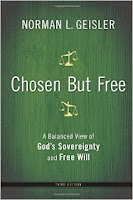I was reading through the Q&A's on
Reasonablefaith.com and came across one in which a reader took issue with William Lane Craig's claim that the atheistic worldview is one without hope. The reader believes that the atheist
does have hope. Craig recognized the unique argument then went on to defend his statement. Please read the Q&A
here (may require registration, I don't remember) for the complete context of this post.
It appears that the validity of Craig's statement stands on what the
hope is in. All
hope requires an object of that
hope, otherwise it is an empty, meaningless word. If someone tells me that they offer me "hope", my first question is, "okay...hope for what?"
When we're talking about what comes after death, the "hope" that people refer to is the same hope that everyone has- to escape the pain and suffering of this life. Everyone has different forms of this hope, but it boils down to that. Let's look at some of the different "hopes" offered (these are greatly simplified for the purposes of this post, please don't flame me about it):
The atheist's hope is to go immediately into nonexistence after death. That would mean no experience of anything, including pain and suffering and even punishment or reward (more on this specifically in a future post "
Atheism And The Escape From Responsibility"). Nothing good is experienced either, as a result of the nonexistence.
The hope offered by many eastern religions is that one will eventually (after many lives) be either absorbed into everything and not experience anything individually or be totally extinguished and not experience anything. Either way, the individual escapes the experience of pain and suffering, however neither is anything good experienced.
The three major theistic religions (Christianity, Judaism, Islam) offer hope of
living without pain and suffering. The experiences of pain and suffering are gone while only the experiences of good remain. (See my post "
Suffering Sucks...or Does It?" (specifically, the audio clip from Hugh Ross) for why pain and suffering are required to even recognize experiences of only good).
I would like to submit that the hope offered by the theistic religions is much more desirable than those of atheism or the eastern religions. Here's why. Life is full of many wonderful experiences and emotions. Life is also full of much painful suffering. I do not know a single person who would not want to leave all the painful stuff behind and only experience the good stuff. That
is the hope offered by the theistic religions. But...
...What differentiates these is the method to obtain that hope. In Judaism and Islam the person must
earn their hope by their behavior. If they are not more good than bad, they don't have the hope offered by their religion. In Christianity, it is recognized that the standard of "good"
can not (can: the ability to; not: the negation of) be obtained by us humans. Jesus Christ offers himself in our place of having to meet the standard of "good"; He even takes it a step further and takes our place for everything bad that we did, so we don't have to endure the punishment. In Christianity, all we have to do is recognize that what Christ has offered to us is the
only possible way to obtain the life promised (that does mean swallowing our pride and recognizing that we are not as independent as we would like to be) and accept that offer.
This post is starting to get a little on the longer side, so I want to make a couple quick statements and recognitions of what might be going through your mind.
To keep the flow of the post somewhat smooth, I did not mention explicitly anything about the realities of two competing hopes being able to coexist. I affirm that two realities described by two competing hopes
can not coexist (the realities described by the eastern hope and theistic hope cannot both be true). As a theist (Christian specifically), I deny the "truth" offered by the eastern religions.
I recognize that "desirable" does not equal truth. Please read other posts in my blog for other reasons for my theism and how I reconcile different harsh realities of life.
Books
Without a Doubt
A World of Difference
Websites
Reasonable Faith
Ravi Zacharias International Ministries
Podcasts
Just Thinking
Let My People Think
Reasonable Faith
Defenders
Without A Doubt
Straight Thinking
Stand to Reason





